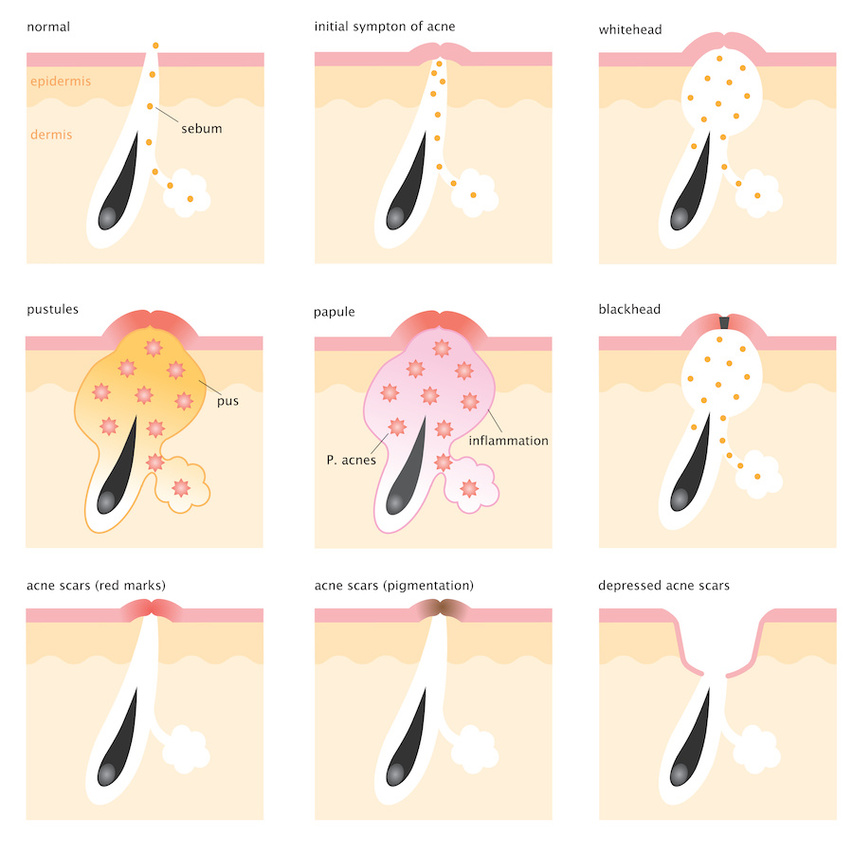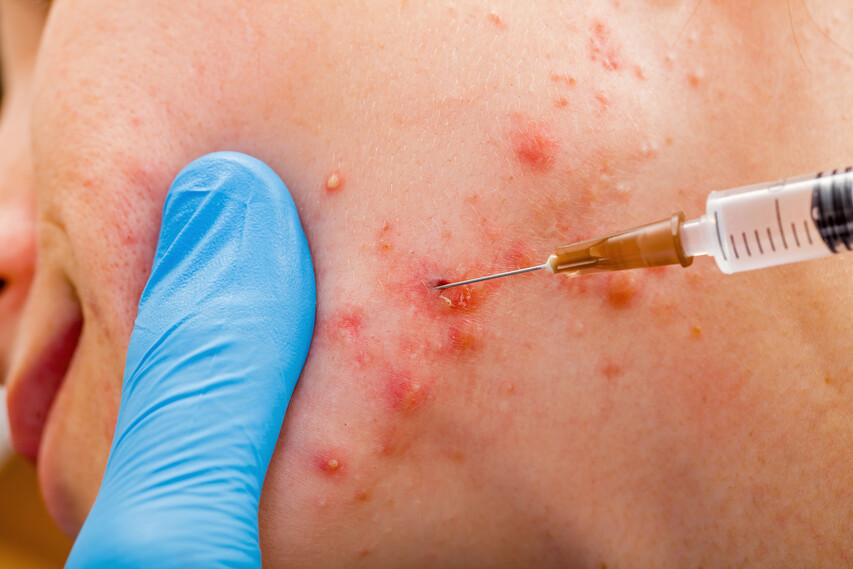What is the best treatment for cystic acne?

Understanding and Managing Cystic Acne
Cystic acne is the most severe form of acne, often persisting for years if left untreated and leaving both physical and emotional scars. While most individuals experience mild to moderate acne that can be managed with topical treatments, around 20% of acne sufferers face severe cystic acne, which typically requires additional therapies for effective management.
Acne Cysts vs. Nodules
- Acne Cysts: These are small "sacs" beneath the skin filled with sebum (oil), bacteria, and dead skin cells. Surrounded by inflamed tissue, these cysts often feel tender and protrude before becoming visible.
- Nodules: Hardened cysts where fluid has been replaced with scar tissue. These can persist for weeks or months.

What Causes Cystic Acne?
Cystic acne arises when inflamed sebaceous glands rupture, spreading bacteria and sebum to surrounding tissues, triggering painful, deep infections. This can occur due to:
- Genetic predisposition
- Hormonal changes or imbalances
- External factors such as stress, diet, certain medications, or unsuitable skincare products
The resulting inflammation often leads to permanent acne scars, with cystic acne affecting areas such as the face, chest, back, jawline, neck, armpits, and buttocks.
How Common Is Cystic Acne?
Acne is the most prevalent skin condition, affecting over 50 million Americans. Moderate to severe acne impacts about 20% of young people, with cystic acne often showing a hereditary link—some studies suggest an 80% likelihood among first-degree relatives.
Psychological Effects of Cystic Acne
The emotional toll of cystic acne is profound. Studies show that up to 50% of adolescents with acne face significant psychological challenges, including:
- Low self-esteem
- Anxiety and depression
- Impacts on social life, education, and career
Best Treatments for Cystic Acne
Topical Treatments
The first step in managing cystic acne is an effective skincare routine with medicated products:
- Cleansers, Treatment Creams, and Moisturizers: These should include active ingredients like salicylic acid and benzoyl peroxide to unclog pores, reduce oil, and eliminate bacteria.
- Application Tip: Use treatment creams on the entire face, not just on individual pimples, to prevent future breakouts.
Dermatologist Advice: To find the right products for your skin type and acne severity, take the free MDacne skin analysis.
Oral Medications
For severe cases unresponsive to topical treatments, dermatologists may recommend oral medications:
- Antibiotics: Reduce bacteria and inflammation but offer only short-term benefits. Side effects may include gut flora disruption, abdominal pain, and bacterial resistance.
- Isotretinoin (Accutane): The most potent acne treatment, often leading to long-term remission. However, it requires careful monitoring due to potential side effects.
- Birth Control Pills (Females Only): Pills containing both estrogen and progesterone can reduce androgen levels, decreasing sebum production. Avoid progesterone-only pills, which may worsen acne.
- Spironolactone (Females Only): This androgen blocker reduces sebum production but may cause elevated potassium levels and diuretic effects.
In-Office Dermatologist Treatments
Cortisone Injections:
For painful cysts, dermatologists can inject a corticosteroid directly into the lesion, offering:
- Rapid reduction in size and pain (within 8 hours)
- Faster healing
In severe cases, large cysts may also be drained. These procedures should only be performed in a sterile medical setting by a licensed professional.
Potential Side Effects:
While cortisone injections are effective for existing cysts, they do not prevent future breakouts. Rarely, they may cause skin "pitting," which usually resolves over time.
Conclusion
Cystic acne requires proactive and tailored treatment to minimize physical and emotional impacts. Start with an effective topical skincare regimen, and consult a dermatologist if your condition is severe or unresponsive to topical treatments. With the right care, clear and healthy skin is achievable, allowing you to regain confidence and comfort in your appearance.
More info:
- Best Vitamins and supplements for cystic acne
- DIM -The best supplements for adult acne and hormonal acne
- Best retinol products for adult acne
To find the right acne treatments for your unique skin, take the free skin assessment by clicking here.




